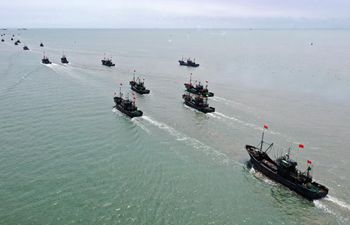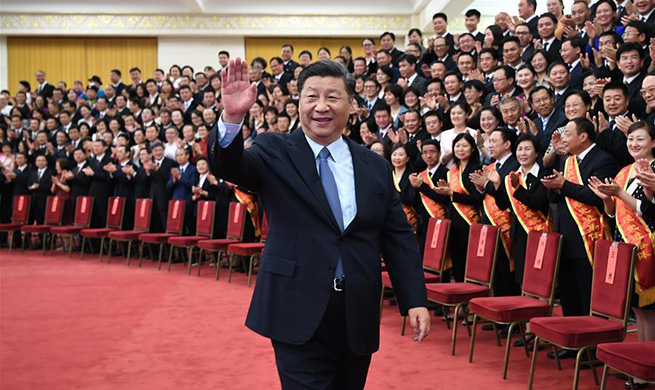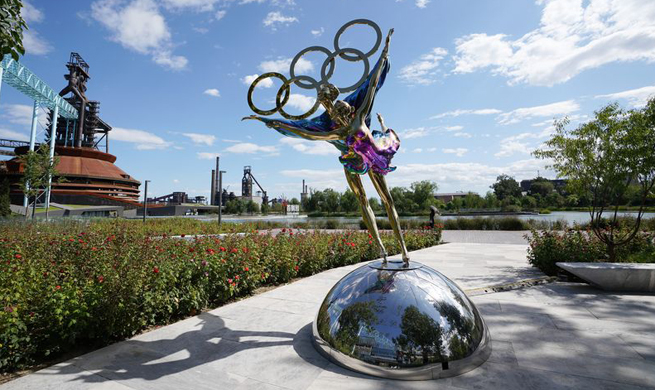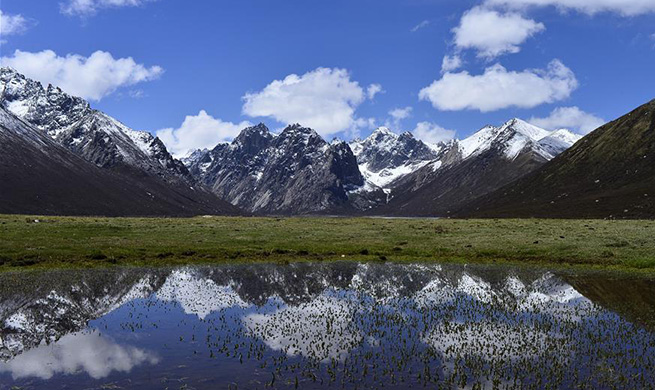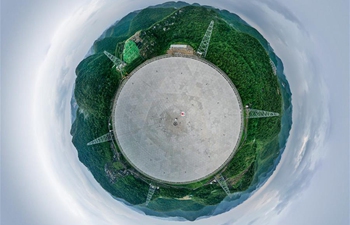by Maria Vasileiou
THE HAGUE, Sept. 2 (Xinhua) -- With climate change concerns growing, the Netherlands has stepped up efforts to advance climate action within the European Union (EU), aiming to make the EU climate neutral by 2050, in close cooperation with like-minded European countries.
"Strengthening climate protection is a high priority for the Dutch government, which aims to achieve a sharp reduction of greenhouse gas emissions within the national context, but also on EU level in cooperation with other European member states," said Paul Hofhuis, senior research associate at the Netherlands International Relations Institute, Clingendael.
"The Netherlands wants to raise the European target for 2030 to reduce emissions by 40 percent to 55 percent, in line with its ambition to achieve climate neutrality by 2050. For this it seeks to lead a group of like-minded EU countries," the expert on sustainable development at the Hague-based institute told Xinhua.
Since Dutch Prime Minister Mark Rutte called upon the EU to revise its collective carbon target up to 55 percent below 1990 levels by 2030 last year, he has been working hard to convince not only Germany, but also France, Denmark, Sweden, Belgium, Finland and other European countries, to join this ambition, said Hofhuis.
Until recently, Germany seemed reserved to share the Dutch plans, but following a meeting in the Hague late last month, German Chancellor Angela Merkel and Rutte announced their intention to cooperate closer to achieve carbon neutrality by 2050 at EU level.
"Together with Germany, the Netherlands can play a significant role in boosting Europe's climate ambitions and take a lead in the worldwide climate discussions," said Hofhuis. The Dutch-German joint meeting took place a month ahead of the 2019 United Nations (UN) Climate Action Summit on Sept. 21-23 in New York.
An important driver for the discussion within the EU is the United Nations Climate Change Conference of the Conference of the Parties (COP-25) from Dec. 2 to 13 in Santiago, Chile. "Like in Paris in 2015, it is important that EU member states show in Santiago that there is agreement on very ambitious climate change targets and the Netherlands will continue taking a strong position in the ongoing discussions in Brussels," said Hofhuis.
European Commission President-elect Ursula von der Leyen has also pledged to turn the EU carbon neutral by 2050. Von der Leyen, scheduled to meet Rutte here on Tuesday to discuss the future agenda of the new European Commission, has also made it a priority to deliver a European Green Deal to reduce the block's emissions and act on the continent's deep decarbonization.
"Von der Leyen made a strong case that she would be in favour of climate neutrality by 2050 and of cutting emissions by 55 percent in 2030," said Hofhuis. "But there is still a battle going on within the EU about the 2050 and the 2030 targets with objections coming mainly from Eastern European states."
Currently, the EU's commitment under the United Nations Paris Agreement set to limit global warming to "well below 2 degrees Celsius" is aimed at reducing the continent's greenhouse gas by 40 percent by 2030 based on 1990 levels. Adopting a climate neutrality target by 2050 has been met with opposition mainly from the Czech Republic, Estonia, Hungary and Poland.
The Dutch reached agreement on a national climate plan to reduce greenhouse gases by 49 percent by 2030 in June this year, while Germany is set to make key decisions on Sept. 20. Germany is lagging behind its goal of reducing greenhouse emissions by 40 percent by 2020. So far, the EU's largest economy has reduced emissions by 32 percent since 1990.
The Netherlands is also a long way from reaching its goals, having reduced its greenhouse emissions by around 14.5 percent since 1990. At the same time the government faces the challenge of winning the support of the Parliament on the ambitious national Climate Agreement in the following months.
"The Parliament has to approve the plan and over the next months it will become clear how strong and how wide the support will be," said Hofhuis.
The Dutch package, a more than 200 pages long agreement, spells out a wide range of concrete actions, including making electricity production in the country 100 percent carbon neutral in 2050 and generate 70 percent of energy from wind and solar power by 2030.
"The discussion in Parliament on these issues is very crucial for Prime Minister Rutte's climate ambition, if he is to push forward his goals on an EU level," said Hofhuis. "If he cannot achieve his ambition domestically, he will meet objections ... in gaining support to reduce greenhouse emissions by 55% at the EU level."
